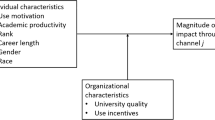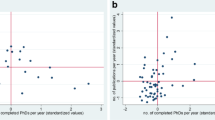Abstract
This article addresses the concern expressed by many within the Pacific Sociological Association in recent years that their regional organization is increasingly seen by Research I University sociologists as no longer meeting their professional needs, thus leading to (a) decreasing rates of membership and participation within, (b) a decline in the amount of high quality professional work associated with, and (c) a diminishment of the professional status of, the PSA. Using data gained from a membership survey of sociologists at the 29 Research I Universities in the Western Region of the United States and Canada, the empirical basis of these claims is examined, and their possible implications explored. The results of this investigation suggest that although PSA membership among faculty members at PhD-granting institutions may have declined somewhat over time, this has occurred for a number of very comprehendible reasons, some associated with but others external to the Pacific Sociological Association as a professional organization. In light of these findings, it is the main recommendation of this paper that the PSA should continue to approach this issue in a careful and reasoned manner, doing what it reasonably can to try to meet the professional needs of Research I University sociologists in the 21st century, but being mindful not to jeopardize what has made the PSA important and attractive to its growing number of other constituencies in recent years.
Similar content being viewed by others
Notes
In retrospect, it is perhaps unfortunate that we did not distinguish between tenured and tenure-track faculty, on the one hand, and lecturers and instructors, on the other, in collecting our data from this sample of university professors. It is almost certainly the case that a full-time lecturer at a typical Research I University has a very different career, and a very different set of opportunities and job demands, when compared to a tenure-track colleague who is primarily engaged in research and other scholarly activity. Not being able to disaggregate our survey responses on this basis is a regrettable limitation of this data set.
It is important to note in this regard that Simpson et al. (1988) seemed to be speaking of a very similar trend when she described the processes of “growth and differentiation” that marked the development of the Southern Sociological Society during roughly the same period of time. In her words, “Its membership has grown and become more diverse, it has become increasingly differentiated and formalized as an organization, it has undergone redirection of its goals and functions, and it has changed in its relationship to the South and to American Sociology” (1988:70). She then went on to add that, “the growth of the Society as an organization and its differentiation were not wholly the results of an increase in membership. The processes of change arose also from pressures generated within the Society. It needed to span the generations of sociologists and the increased diversity of their work experiences if it was to maintain itself as an ongoing concern” (1988:120).
For example, in the fall of 2008, a total of 380 letters and PSA brochures were sent to faculty members (currently non-members of the PSA) employed at many of the graduate institutions in the region, offering them PSA Membership at a highly discounted rate. However, this initiative yielded only a dozen new memberships. A similar program of outreach was attempted in 2012 (see Hohm 2013b), but its results were not known of this writing.
My thanks to Larry Nichols for suggesting this important possibility to me.
Personal correspondence with former Executive Director (and current Treasurer) of the Pacific Sociological Association, Dean Dorn (2013).
I thank Dennis Downey for bringing this important point to my attention.
References
academic.research.microsoft.com. (2013). Top journals in sociology. Retrieved August 7, 2013 (http://academic.research.microsoft.com/RankList?entitytype=4&topDomainID=22&sub-DomainID=10&last=0&start=1&end=100).
Bates, K., Downey, D. J., & Gumbir, V. (2010). “Conference format: Issues, challenges, and options: Report to PSA membership committee, 2010. Report: Unpublished.
Brym, R. J. (2003). The decline of the Canadian sociology and anthropology association. The Canadian Journal of Sociology, 28(3), 411–416.
Collins, R. (1986). Is 1980s sociology in the doldrums?”. American Journal of Sociology, 91(6), 1336–1355.
Dorn, D. S. (2005). Seventy-five years of the pacific sociological association: 1929–2004. Sacramento: The Pacific Sociological Association.
Hohm, C. (2011). “2011 PSA annual meeting satisfaction survey.” (http://pacificsoc.typepad.com/Mmbr_Satisfac_Surv/PSA%20Annual%20Meeting%20Satisfaction%20Survey%202011.pdf).
Hohm, C. (2012). “2012 PSA annual meeting satisfaction survey.” (http://pacificsoc.typepad.com/Mmbr_Satisfac_Surv/PSA%20Annual%20Meeting%20Satisfaction%20Survey%202012%20.pdf).
Hohm, C. (2013a). “2013 PSA annual meeting satisfaction survey.” (http://pacificsoc.typepad.com/Mmbr_Satisfac_Surv/Annual%20Meeting%20Satisfaction%20Survey%202013.pdf).
Hohm, C. (2013b). “From the outgoing Executive Director: PSA executive director says ‘Thank You.’” The Pacific Sociologist 21 (May) (http://www.thepacificsociologist.org/may13/goodbye_0513.html).
Howard, J. R. (2007). 2007 North Central sociological association presidential address: teaching and learning and the culture of the regional association in American sociology. Sociological Focus, 40(3), 250–264.
Jacobs, J.A. (2011). “Journal rankings in sociology: Using the H index with google scholar.” Population center, University of Pennsylvania, PSC working paper series PSC 11–05.
Keith, B. (2000). Taking stock of the discipline: some reflections on the state of American sociology. The American Sociologist, 31(1), 5–14.
Keith, B. (2004). Disciplinary culture and organizational dissonance: the regional association in American sociology. Sociological Focus, 37(2), 83–105.
Powers, C., Fernandez, M., Boissicat, K. (2010). “Editors report: Report from the Editors, sociological perspectives.” Report to PSA Council and Publications Committee Covering Calendar Year 2009 (Volume 52).
Red J. (2013). Journal-ranking.com. Retrieved August 5, 2013 (http://journal-ranking.com/ranking/listCommonRanking.html?selfCitationWeight=1&externalCitationWeight=1&citing-StartYear=1901&journalListId=440).
Simpson, I.H., with the assistance of Simpson, R.L. (1988). Fifty years of the southern sociological society: Change and continuity in a professional society. Athens: The University of Georgia Press.
The Carnegie Foundation for the Advancement of Teaching. (1994). A classification of institutions of higher education (technical report). San Francisco: Jossey-Bass.
Turner, J. H. (1989). The disintegration of American sociology: pacific sociological association 1988 Presidential address. Sociological Perspectives, 32(4), 419–433.
Acknowledgments
The author would like to thank Dennis Downey, Chuck Hohm, Dean Dorn, Lawrence Nichols, Bill Bogard, Alissa Cordner, Michelle Janning, Helen Kim and Gilbert Mireles for their helpful suggestions relating to this article and the ideas contained therein.
Author information
Authors and Affiliations
Corresponding author
Rights and permissions
About this article
Cite this article
Farrington, K. “Can/Should/Does One Size Fit All? Does the Pacific Sociological Association Still Meet the Needs of Faculty Members at PhD-Granting Institutions?”. Am Soc 45, 254–270 (2014). https://doi.org/10.1007/s12108-014-9228-7
Published:
Issue Date:
DOI: https://doi.org/10.1007/s12108-014-9228-7




